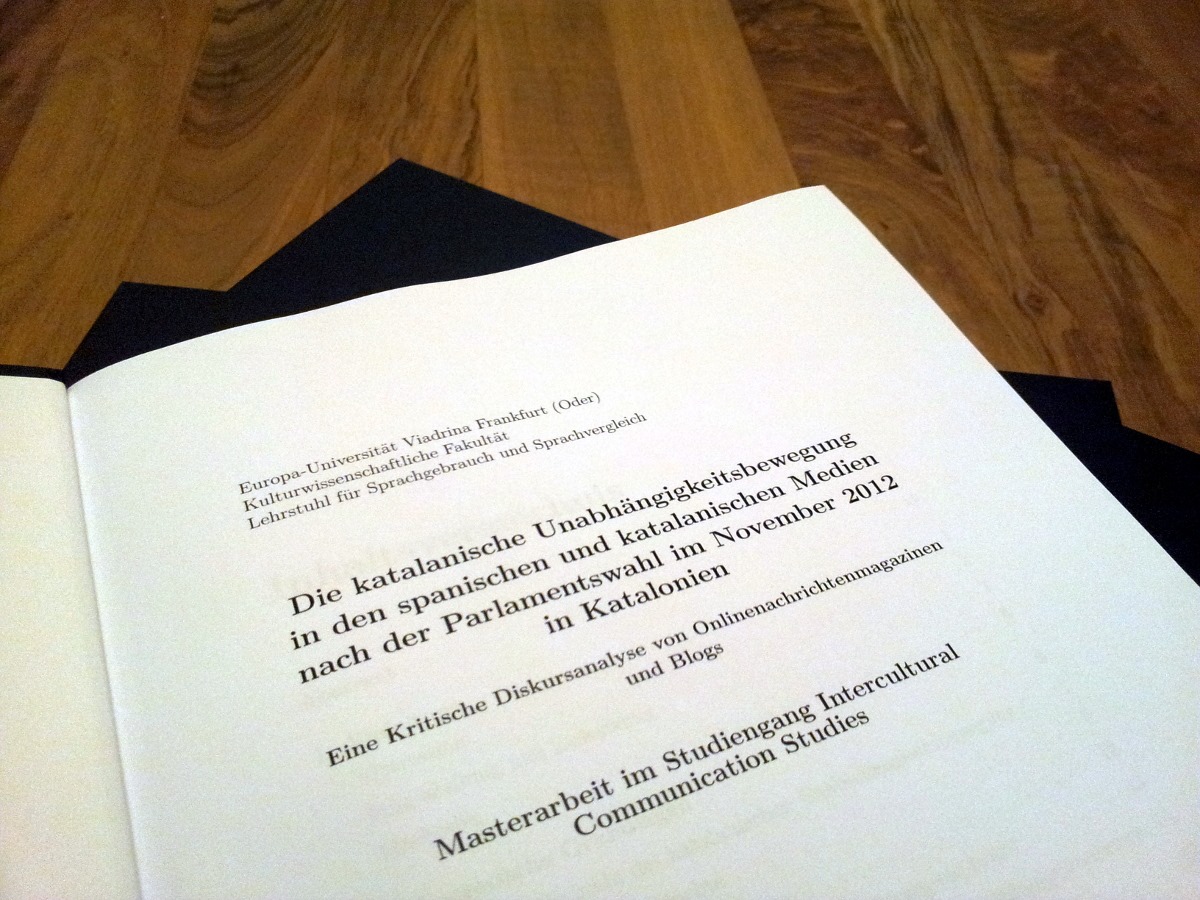Catalunya is not Spain is a well known slogan and a famous symbol of the Catalan Movement of Independence. After failing negotiations between the Spanish prime minister Rajoy and the Catalan president Mas concerning the Catalan treasury, Catalans had to vote on its continuance in Spain or apart from it. The will of independence was the leading topic of the election campaign. The election results led to a new government formed by the Convergence and Union (CiU) and the Republican Left of Catalonia (ERC). As a first result of this partnership, the Catalan Sovereignty Declaration was issued on January 23rd, 2013. Catalonia’s discourse of independence is based on its strong historic and cultural roots furthermore its own language. Therefore, a review of its history will be given. Besides this summary, a short excursus about the development of journalism from unidirectional mass media towards a participative online media will be given.
To analyze the Catalan discourse the method of Critical Discourse Analysis was chosen. After lectureing different approaches by Norman Fairclough, Ruth Wodak, Teun van Dijk and Siegfried Jäger, the method of Jäger, based on the conception of discourse by Michel Foucault, was proven to be adequate. To generate the data set, articles were collected in two steps: first of all, relevant media was inquired by using Google Alerts, and, secondly, the so selected media was scanned for articles focusing on the Catalan independence. Following the procedure of Jäger, about 450 articles published in Catalan and
Spanish online media were analyzed concerning their structure, content and symbols. Based on this results, two specific articles were explicitly analyzed, one published in the conservative Spanish newspaper ABC, the other in La Vanguardia, the leading Catalan newspaper.
The Critical Discourse Analysis locates two different hegemonic discourses: the discourse of independence, supported by the Catalan parties CiU, ERC and others, and the Spanish discourse, maintained by Spanish unionist parties, the Spanish Socialist Workers’ Party (PSOE) and the People’s Party (PP) as well as its Catalan representative PPC. But both positions are not homogeneous discourses, instead of homogeneity many diversified positions within These parties are mentioned by the media. Behind every discourse, there are different
models of states like the concept of autonomy, federalism or centralism. To underline the particular position, different topics are used and exploited. The mentioned topics are: independence, election of parliament and the new government, conception of democracy, foreign affairs, national Catalan identity, the economies and crisis, other movements of independence, and the international media coverage.
As the discourse of independence is already settled in history, it also will affect the future and the power struggle between the Spanish and Catalan discourse is still ongoing. In December 2013, the Catalan Parties fixed an agreement concerning the wording of an independence referendum and proposed as date November 9th, 2014. The response of Spanish parliament occurred immediately.
Further Readings: Master Thesis in Geman (pdf)
